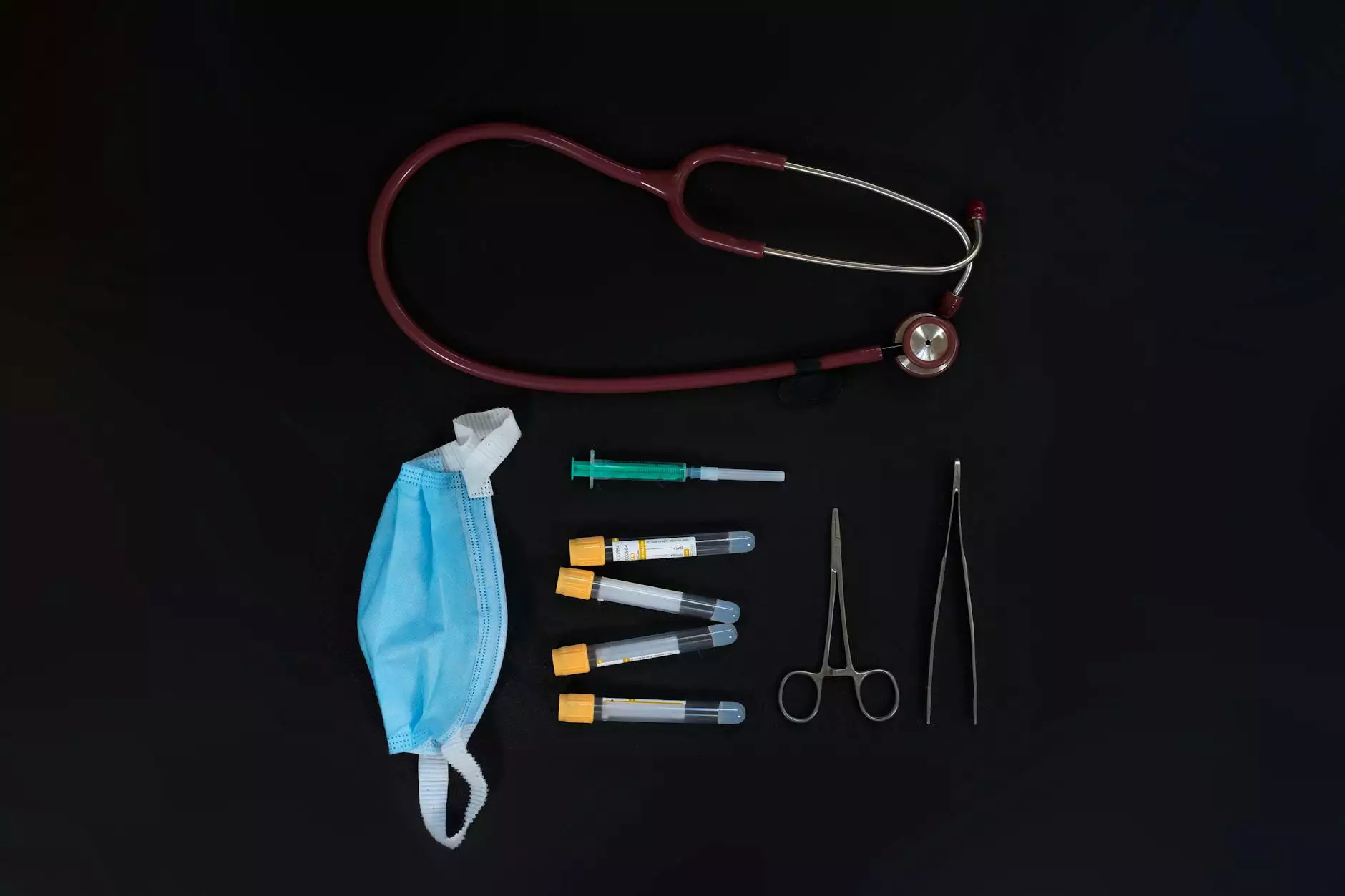Prescription Weight Loss Injections: A Comprehensive Guide

Weight loss can be a challenging journey for many individuals. With the increasing awareness of health and wellness, various methods to aid in weight management have emerged, including prescription weight loss injections. These medical treatments can significantly contribute to weight loss when combined with a proper diet and exercise. In this detailed article, we will delve into the world of prescription weight loss injections, exploring their benefits, mechanisms, types, and everything else you need to know to make an informed decision.
What Are Prescription Weight Loss Injections?
Prescription weight loss injections are medications administered through injection to assist individuals in achieving their weight loss goals. These injections are typically prescribed by healthcare professionals and are used as a part of a comprehensive weight loss program that includes a balanced diet and physical activity.
How Do Prescription Weight Loss Injections Work?
The effectiveness of prescription weight loss injections primarily revolves around their active ingredients. Different injections work through various mechanisms that ultimately help in weight management. Here are some ways they can assist in weight loss:
1. Appetite Suppression
Certain injections contain compounds that signal the brain to reduce hunger. By altering the way your brain perceives hunger signals, these injections can help you consume fewer calories throughout the day.
2. Boosting Metabolism
Other types of weight loss injections can enhance your metabolism, enabling your body to burn calories more efficiently. A higher metabolic rate can lead to more significant weight loss over time.
3. Fat Decomposition
Some injections are designed to enhance the body’s ability to decompose and use fat stores for energy. This process can encourage the body to utilize stored fat, leading to further weight reduction.
4. Regulating Blood Sugar Levels
Injections that help regulate blood sugar levels can be beneficial, especially for those at risk of type 2 diabetes. Stable blood sugar levels can result in reduced cravings and better overall weight management.
Types of Prescription Weight Loss Injections
There are several types of prescription weight loss injections available, each with its unique mechanism of action and benefits. Understanding these types can help you determine which option may be best for you:
1. GLP-1 Agonists
GLP-1 (Glucagon-like peptide-1) agonists are among the most commonly prescribed weight loss injections. They help mimic the effects of a hormone that regulates appetite and insulin secretion.
- Semi-glutide - A popular choice known for its significant effects on weight loss.
- Liraglutide - Another effective GLP-1 agonist used in weight management.
2. Lipotropic Injections
Lipotropic injections contain amino acids and vitamins that promote fat burning and liver health. They are often combined with a diet and exercise plan to help enhance weight loss efforts.
3. HCG Injections
HCG (Human Chorionic Gonadotropin) injections are controversial but are believed by some to help suppress appetite while promoting fat loss. They are typically part of a very low-calorie diet.
Benefits of Prescription Weight Loss Injections
Prescription weight loss injections come with a plethora of benefits, making them an attractive option for many individuals. Here are some of the key advantages:
1. Rapid Weight Loss
Many individuals experience quick results when using these injections, which can be motivating and promote adherence to a weight loss program.
2. Reduced Cravings
By curbing appetite and cravings, these injections can make it significantly easier for individuals to adhere to their dietary restrictions.
3. Safety and Supervision
Since these injections require a prescription, their use is monitored by healthcare providers, ensuring that individuals receive necessary support during their weight loss journey.
4. Customization
Healthcare professionals can tailor weight loss injection plans to meet individual needs, providing a personalized approach to weight management.
Considerations Before Starting Treatment
Before beginning a treatment plan involving prescription weight loss injections, it’s crucial to consider several factors:
1. Medical History
Individuals should discuss their complete medical history with their healthcare provider. Pre-existing conditions may influence whether these injections are suitable.
2. Potential Side Effects
Like any medication, weight loss injections can have side effects. Common ones can include nausea, diarrhea, and reactions at the injection site. Understanding these risks is essential.
3. Lifestyle Commitment
It’s crucial to recognize that injections are not a stand-alone solution. Committing to a balanced diet and regular exercise is essential for achieving lasting results.
Integrating Prescription Weight Loss Injections with a Weight Loss Program
For the best outcomes, prescription weight loss injections should be part of a comprehensive weight loss strategy. Here are some steps to successfully integrate them into your weight loss plan:
1. Consultation with Healthcare Professionals
Before starting any weight loss medication, you should have a detailed consultation with a healthcare provider. They can help assess your needs and determine a suitable plan.
2. Setting Realistic Goals
Setting achievable weight loss goals can help maintain motivation and ensure that expectations are realistic, reducing the risk of discouragement.
3. Dietary Choices
Alongside the injections, individuals should focus on nutritious dietary choices. Emphasizing whole foods, high in protein and fiber while reducing sugar and processed foods, can enhance weight loss outcomes.
4. Regular Physical Activity
Engaging in regular physical activity is a vital part of any weight loss program. Finding enjoyable activities can help maintain consistency and foster a positive relationship with exercise.
Conclusion: Making the Right Choice for Your Health
Prescription weight loss injections can be a valuable tool for those struggling with weight management. By understanding how these injections work, their benefits, and how to integrate them into a broader weight loss strategy, individuals can take significant steps towards achieving their health goals. Always consult with your healthcare provider to determine the most appropriate treatment for your needs.
Frequently Asked Questions (FAQs)
1. Are prescription weight loss injections safe?
When used under the supervision of a healthcare provider, prescription weight loss injections are generally safe. However, like any medication, they may have side effects, and individual results may vary.
2. How long does it take to see results from weight loss injections?
The speed at which individuals see results can vary based on the injection type and personal factors such as adherence to diet and exercise. Many people may notice changes within a few weeks.
3. Can I use weight loss injections without changing my diet or exercise routine?
While weight loss injections can aid in the process, they are most effective when combined with a healthy diet and regular exercise. A holistic approach ensures better outcomes.
4. Who is a good candidate for prescription weight loss injections?
Good candidates typically include individuals who are clinically overweight or obese and have struggled to lose weight through traditional methods. Consultation with a healthcare provider is essential.









